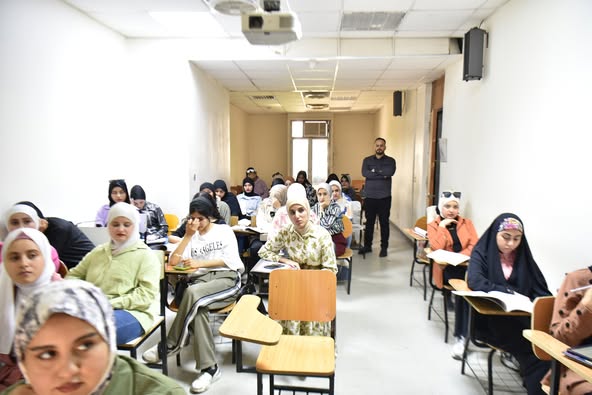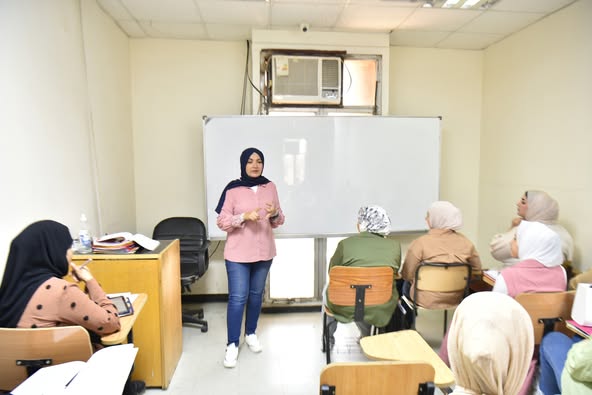Under the patronage of Professor Dr. Sameera Naji Khdim, Dean of the College of Science for Women, the Rehabilitation and Employment Unit organized a workshop titled “IoT Applications in Business and Telecommunications”. The session was delivered by Dr. Safa Sami Abdul-Jabbar, head of the unit, and attended by several staff members and students of the college.
The workshop aimed to introduce participants to the concept of the Internet of Things (IoT) and highlight its most prominent applications across various sectors. It emphasized the promising opportunities IoT presents in the job market, especially in the fields of internet technologies and telecommunications. Additionally, the workshop shed light on integrating IoT technologies into digital infrastructure and analyzing their impact on future jobs such as data analysis, cybersecurity, and smart network management. The session also addressed the challenges hindering the widespread adoption of IoT and the essential skills young professionals need to enter this promising field.
The workshop began with an introduction to the Internet of Things (IoT) as a technological concept that refers to the interconnection of smart devices, machines, vehicles, and even everyday objects via the internet, enabling them to exchange data and receive commands without direct human intervention. This technology relies on sensors and network-connected software to analyze data and make decisions.
Subsequently, the key benefits of IoT were discussed, including:
Enhancing Operational Efficiency
Through the automation of industrial processes using smart robots and precision agriculture technologies (e.g., smart irrigation), IoT reduces waste and boosts productivity. Predictive maintenance was also highlighted as a means of preventing unexpected equipment failures through data analysis.
Resource and Energy Conservation
Smart systems for lighting and heating in homes and buildings adjust energy consumption based on need. Smart grids were cited as examples of systems that balance electricity supply and demand efficiently.
Advanced Healthcare Services
Wearable medical devices, such as heart rate monitoring watches, enable remote patient monitoring and emergency alert systems, contributing to improved healthcare outcomes.
Improved Quality of Life
Smart homes allow users to control locks, cameras, refrigerators, and other appliances via smartphones. Similarly, connected vehicles can provide traffic updates or operate autonomously.
Smart City Development
IoT technologies enable intelligent traffic management through adaptive traffic lights that reduce congestion, and smart waste containers that notify municipal services when full.
Enhanced Customer Experience
Retailers can use IoT data to personalize promotions based on consumer behavior, while smart advertising screens adapt content according to the target audience.
Finally, the workshop addressed several potential challenges. Despite the advantages IoT offers, concerns remain regarding data security, device hacking, privacy violations, and the high cost of infrastructure. Thus, implementing robust and clearly defined security standards is crucial to ensure the safe and effective deployment of IoT technologies.
I am text block. Click edit button to change this text. Lorem ipsum dolor sit amet, consectetur adipiscing elit. Ut elit tellus, luctus nec ullamcorper mattis, pulvinar dapibus leo.










